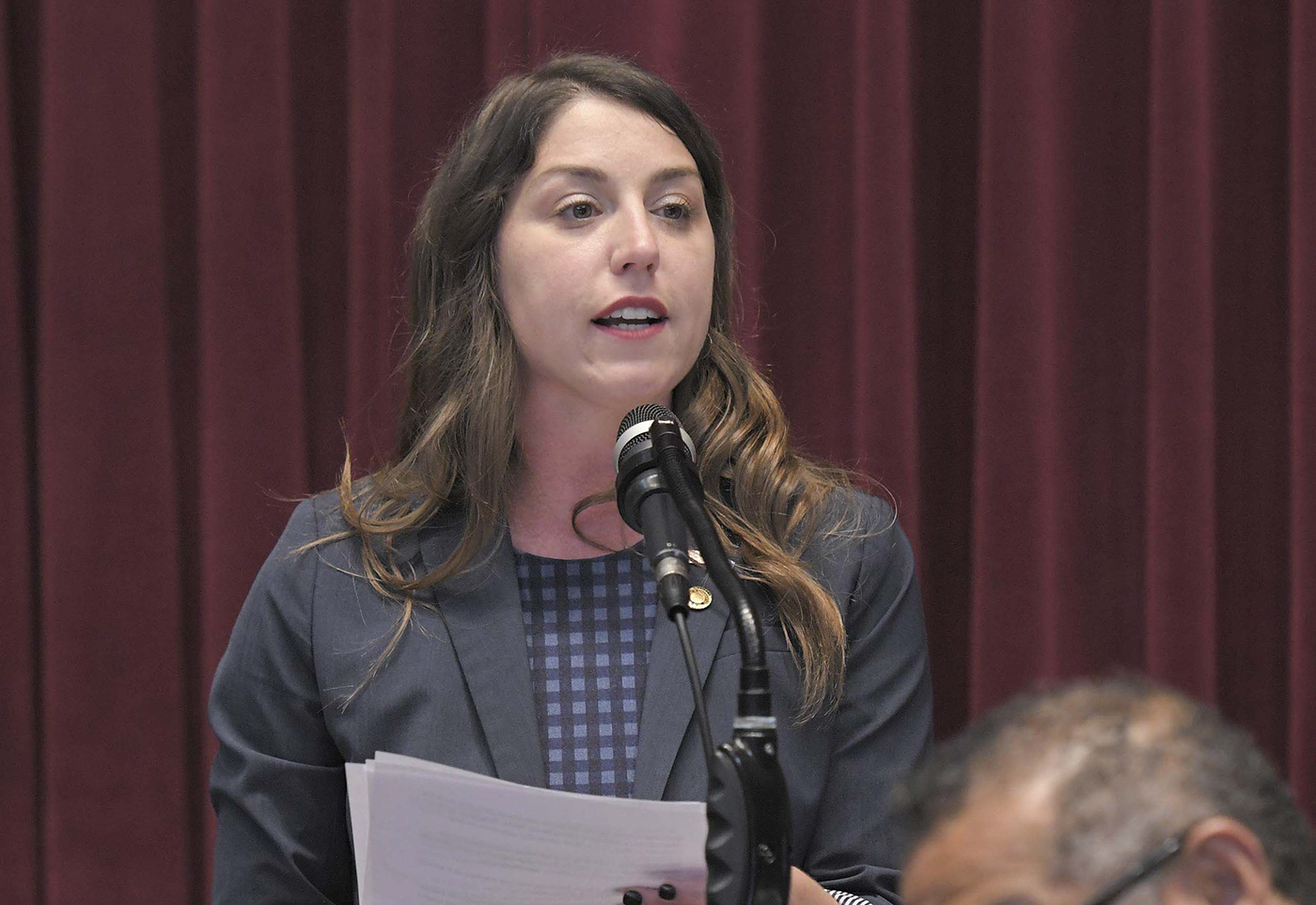by Anna Spoerre, Missouri Independent
A bill that would make Missouri the fourth state to ban Medicaid reimbursements to Planned Parenthood is on its way to the governor.
On April 24, the Missouri House in a vote down party lines approved legislation that would end Medicaid reimbursements to any health centers affiliated with abortion providers. Republicans are confident they’ve landed on a strategy that will finally stick after two failed attempts to pass a similar restriction through the state budget were struck down by state courts.
Planned Parenthood Great Plains and Planned Parenthood of St. Louis Region and Southwest Missouri, which have clinics in Missouri, said in a statement immediately following the vote that they will continue trying to serve all patients, “no matter what.”
This legislation, originally filed by Republican state Rep, Cody Smith of Carthage, is nearly identical to a bill filed by state Sen. Mary Elizabeth Coleman, a Republican from Arnold, which was blocked by a Democratic filibuster in February.
Senate Democrats filibustered for more than 11 hours earlier this month, arguing that the legislation will harm Missouri’s low-income patients. The filibuster was eventually abandoned when Republicans agreed to take out a provision that also would have ended contracts with organizations founded by eugenicists.
Democrats arguing in opposition to the bill on Wednesday said the state’s health care safety net cannot reasonably support the thousands of Medicaid patients who could be displaced from Planned Parenthood for procedures like contraceptive care, STI testing, cancer screenings and wellness checks.
“You’ve said they can just go somewhere else, but you haven’t told us where you think they’re just going to go,” said Deb Lavender, a Democrat from Manchester, adding that this year’s state budget does not include additional spending for safety net clinics across the state.

House Minority Leader Crystal Quade, a Springfield Democrat running for governor, called the legislation “an act of petty vengeance” that will have a “devastating impact on women.”
Republicans stood by their long-held stance that no state funds should go to organizations affiliated with abortion providers.
Missouri was the first state to outlaw abortion after Roe v. Wade was overturned in June 2022. From June 2022 through 2023, there were 52 abortions performed in Missouri under the state’s emergency exemption, according to data from the Missouri Department of Health and Senior Services.
None took place at Missouri Planned Parenthood clinics; however, Planned Parenthood clinics in the neighboring states of Kansas and Illinois still provide abortions.
“We are speaking about the absolute termination and destruction of an individual human life,” said state Rep. Justin Sparks, a Republican from Wildwood. “That life that is growing inside is human.”
Missouri’s safety net clinics
The legislation approved Wednesday is Republican lawmakers’ third attempt in recent years to end Medicaid reimbursements to Planned Parenthood. Twice before, they tried and failed to cut Planned Parenthood’s funding through the state budget, but state courts ruled those attempts unconstitutional.
The latest attempt at the legislation was also passed in Arkansas several years ago. When Arkansas’ law was upheld by the 8th U.S. Circuit Court of Appeals in St. Louis, Planned Parenthood clinics in Arkansas immediately ceased seeing Medicaid patients.
If the Missouri bill becomes law, Planned Parenthood leadership previously said they didn’t know if they could continue seeing patients insured by MO HealthNet, Missouri’s Medicaid program, arguing it would be a financial strain as clinics would no longer be reimbursed for the cost of seeing these patients.
As of March, Planned Parenthood clinics in Missouri had been without Medicaid reimbursements for two years. At the time, Emily Wales, CEO and president of Planned Parenthood Great Plains, which oversees clinics in western Missouri, Arkansas, Kansas and Oklahoma, said her organization offset the cost of care for Missouri Medicaid patients through private fundraising. She was unsure how sustainable that would be in the long-term.
MO HealthNet serves low-income and disabled citizens and has long banned funding for abortion, with limited exceptions.
Planned Parenthood has said nearly one in five of their Missouri patients are on Medicaid.
Trupiano previously said Planned Parenthood is the primary family planning services provider for about 20,000 patients across the state.
During House debate April 24, state Rep. Rep. LaKeySha Bosley, a Democrat from St. Louis, revisited Missouri’s “abysmal” maternal mortality rate, saying as a Black woman, she is afraid to have a child in the state.
In Missouri, women on Medicaid are 10 times more likely to die within one year of pregnancy than those on private insurance, according to an August multi-year report on maternal mortality published by the Missouri Department of Health and Senior Services. Black mothers were three times more likely to die within a year of pregnancy than white mothers, according to the Pregnancy-Associated Mortality Review.
Missouri is also fighting rising congenital syphilis cases. In 2022, Missouri recorded 81 congenital syphilis cases — the most in 30 years, the state health department reported.
In the majority of Missouri’s rising cases of congenital syphilis, mothers had little to no prenatal care, highlighting a larger issue of maternal health care access, the health department noted.
An emergency clause adopted first by the Senate was voted down by the House on Wednesday. That clause would have meant the law would go into effect immediately upon being signed by the governor. Now, if signed by the governor, it won’t go into effect until Aug. 28.
The bill’s passage was a crucial step toward passing a plan to renew taxes set to expire later this year that are critical to funding Missouri’s Medicaid program known as the federal reimbursement allowance.
Senate members of the Missouri Freedom Caucus, a team of the six Republicans in the chamber, have promised to filibuster renewal of the taxes until the governor signs the defund Planned Parenthood bill and the General Assembly approves a proposed constitutional amendment that would make it more difficult to pass constitutional amendments proposed by voter-led initiatives.


